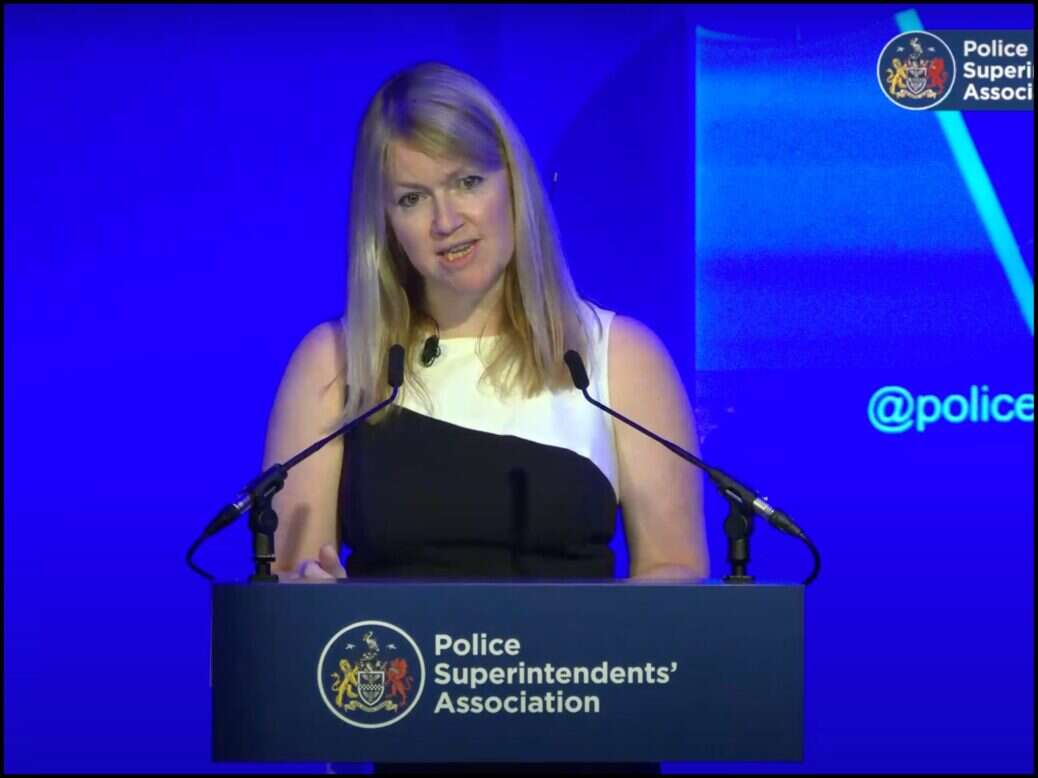
The crime and security editor of the Daily Mail has told the Police Superintendents’ Association that the best way to improve trust in their forces is to be more open with journalists.
Speaking at the association’s conference on Wednesday, Rebecca Camber told English and Welsh police leaders that the “circus of conspiracy theories” surrounding the Nicola Bulley case could have been prevented if officers had briefed reporters about the case more thoroughly off-record.
And she warned that in future, similar unchecked speculation could see social media sleuths meddling with crime scenes or confronting bereaved families.
Camber, who is chair of the Crime Reporters’ Association and has specialised in crime reporting since 2010, said “a successful working relationship between the police service and the media is vital” to trust.
Citing the recent capture of prison escapee Daniel Khalife, she said that “media reporting not only helps solve crimes, but it also helps bring offenders to justice and keep communities safe”.
However, she noted, in a survey of 7,000 police staff by Baroness Casey, 93% of respondents said that negative media coverage had driven a decline in the reputation of the Metropolitan Police.
“The last year has seen a succession of scandals, prosecutions and misconduct cases… and left the police feeling that we are on opposing sides, pitted against each other. And somehow along the way, we have got the blame.”
Camber argued that this was a problem for police as much as journalists. She said that after Nicola Bulley’s disappearance in January, a journalist at the first press conference had asked whether Bulley had been ill or taking any medications that might have informed the police’s inquiries – which the police denied.
“Now that patently wasn’t true,” Camber said. “And the decision to withhold that information created a circus of conspiracy theories, a whirlwind of speculation which attracted so-called Tiktok detectives, psychics, [and] social media sleuths.
“And suddenly those people were sitting in press conferences beside journalists because no one bothered to check their credentials.”
Lancashire Police issued two dispersal orders in February allowing them to move along anyone at the scene of Bulley’s disappearance taking pictures or video for social media.
“In the words of one council leader, it became a morbid tourist destination,” Camber said.
“It worries me, it should worry you… How long before one of those conspiracy theorists knocks on the door of the deceased’s family or attempts to meddle with a crime scene?”
Camber argued that rather than making Bulley’s medical details public, if officers had “told reporters at the start that there were welfare concerns in a clearly defined, non-reportable briefing, her disappearance would have been reported differently and details of her personal problems might have never come out”.
More broadly, she said that in all high-profile investigations police should be giving off-record briefings to journalists. She said there had been “not one” case of a journalist reporting the details of a non-reportable briefing in her decade at the Crime Reporters Association.
“If you don’t trust us, get journalists present to sign legal waivers in the same way you would if it was a pre-trial briefing.
“I assure you, if you take journalists in your confidence, there are real benefits for policing.”
And Camber added that police should not let a major incident be what first puts them in touch with their local journalists, asking the crowd: “When was the last time you picked up the phone and rang a journalist about a cracking piece of work you are doing?”
Although she said “much more could be done to highlight brilliant investigations and innovative practice” in the media, Camber cautioned that police heroics and tales of bravery were not the main thing the public wanted out of crime reporting.
“The arrests, the charges, finding missing people and helping those at their most vulnerable – it is that daily work that gives the public comfort, and with it confidence…
“I am asking you to trust me, trust us. Because I think we are part of the solution, and if you let us in I hope we can work together to rebuild the public’s trust and confidence.”
Email pged@pressgazette.co.uk to point out mistakes, provide story tips or send in a letter for publication on our "Letters Page" blog
